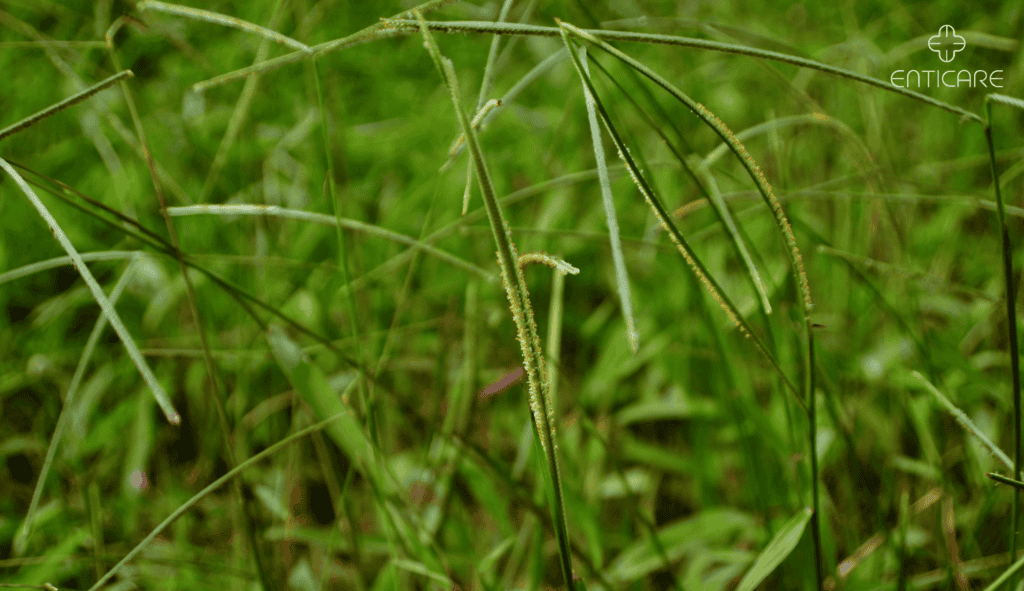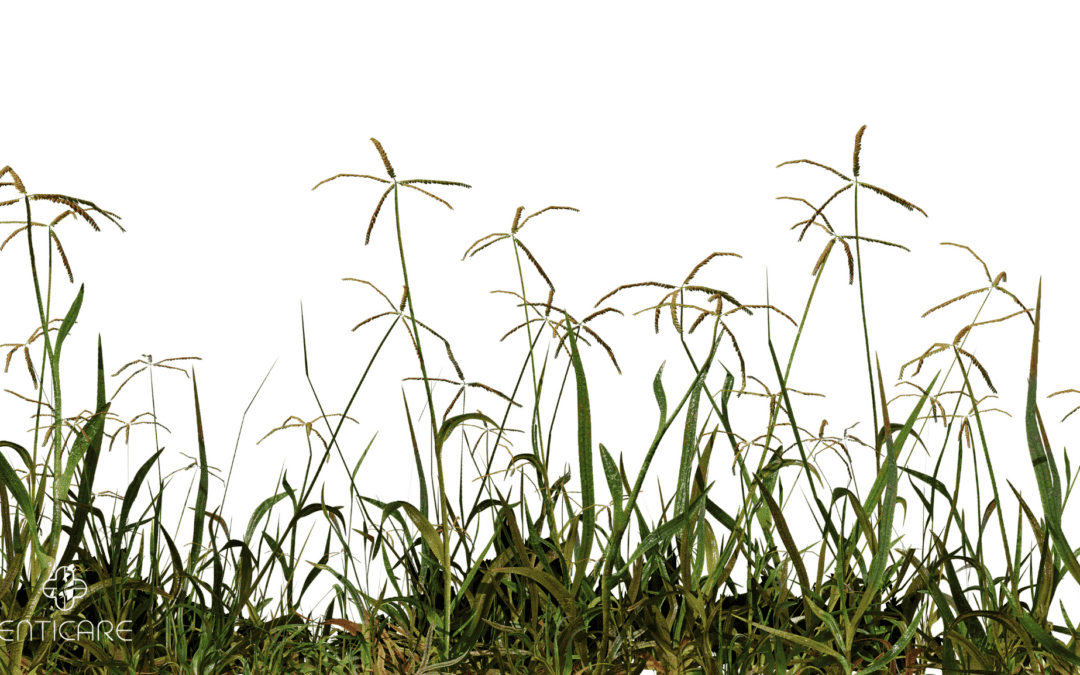Spring is a time for renewal, but for some, it brings a constant battle with itchy eyes, a runny nose, and a never-ending stream of sneezes. If these symptoms worsen around bahia grass, you might be suffering from a bahia grass allergy. This blog dives deep into this allergy, providing you with essential information – from its origins to effective management strategies.

The Bahia Grass: A Beautiful Yet Sneaky Invader
Bahia grass (Paspalum notatum) is a warm-season perennial grass native to South America. Introduced to the United States in the 1940s for erosion control, it’s become a common lawn grass in the Southeast due to its low maintenance needs. However, the pollen it produces during spring and summer can trigger allergies in many people.
Peak Pollen Season: When to Be Cautious
Bahia grass releases pollen from March to September, with peak season typically occurring in May and June. If you experience allergy symptoms during this time in areas with prevalent bahia grass, it’s wise to be aware of its presence.
Recognizing the Culprit: Signs and Symptoms of a Bahia Grass Allergy
If you suspect a bahia grass allergy, watch out for these common symptoms:
- Itchy, watery eyes
- Runny or stuffy nose
- Frequent sneezing
- Coughing
- Scratchy throat
In severe cases, wheezing or difficulty breathing (especially if you have asthma)
These symptoms usually appear within minutes of exposure to bahia grass pollen and can linger for several hours.
The Root of the Problem: Causes of a Bahia Grass Allergy
Similar to other allergies, a bahia grass allergy arises from an overreaction of your immune system. When you inhale bahia grass pollen, your body mistakenly identifies it as a threat, triggering the release of histamines. Histamines are chemicals that cause allergy symptoms like inflammation, itching, and mucus production.
Keeping Allergy Symptoms at Bay: Prevention Tips
While complete avoidance might be challenging, here are some ways to minimize your exposure to bahia grass pollen:
Stay informed: Check pollen forecasts and plan outdoor activities for low pollen count days (usually mornings after a rain shower).
Know your surroundings: If possible, avoid spending extended periods in areas with abundant bahia grass lawns.
Delegate lawn care: If you have bahia grass in your lawn, delegate mowing and weed control to minimize your exposure.
Keep windows closed: Especially during peak pollen season, keep your windows shut and rely on air conditioning with HEPA filters.
Change clothes and shower: After spending time outdoors, change your clothes and wash your hair to remove lingering pollen.
Maintain a clean environment: Regularly vacuum your home and dust surfaces to remove trapped pollen.
Who’s More Susceptible? Risk Factors for Bahia Grass Allergy
Certain factors can increase your risk of developing a bahia grass allergy:
Family history of allergies: If allergies are common in your family, you’re more likely to develop allergies yourself.
Hay fever: People with hay fever (allergic rhinitis) are more prone to developing allergies to other airborne allergens, including bahia grass pollen.
Asthma: If you have asthma, exposure to bahia grass pollen can worsen your symptoms.
Battling the Sniffles: Treatment Options
Several treatment options can help manage your bahia grass allergy:
Over-the-counter medications: Antihistamines like loratadine (Claritin) or cetirizine (Zyrtec) can help alleviate allergy symptoms like sneezing, runny nose, and itchy eyes.
Nasal corticosteroids: Steroid nasal sprays like fluticasone (Flonase) can reduce inflammation in the nasal passages, providing relief from congestion and a runny nose.
Allergy shots (immunotherapy): This long-term treatment involves getting regular injections of small amounts of bahia grass pollen over time. It helps desensitize your immune system to the pollen, gradually reducing your allergy symptoms.
Consult your doctor to determine the most suitable treatment plan for your specific needs. They can recommend the appropriate medication or suggest allergy testing to confirm the source of your allergies. By understanding bahia grass allergy and implementing these management strategies, you can take control of your symptoms and enjoy the beauty of spring without constant sniffles and sneezes. Call Enticare at 480-214-9000!

